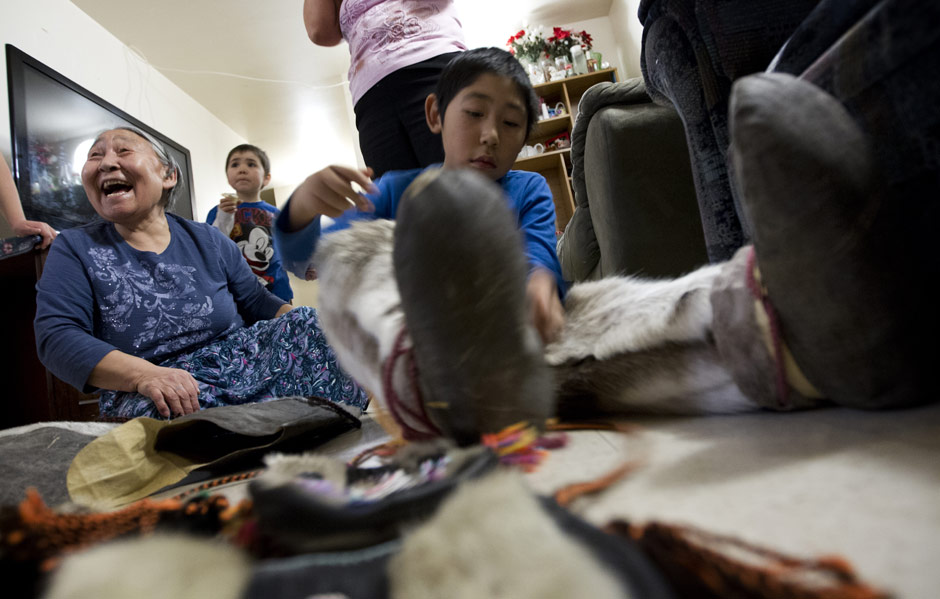In the Canadian Arctic climate change can be added to the list of culprits melting away traditional activities just like its melting the ice caps.
The region is already challenged by high suicide rates, food insecurity and housing shortages. Climate change acts as a ‘threat multiplier’ making the people of the region increasing vulnerable to the sociocultural issues there.

Elder Josephine Ugataq smiling while showing some of the items she sews using traditional methods. photo credit: Peter Power
A new groundbreaking study explores how climate change is affecting the lives of Inuit women in Iqaluit, Nunavut specifically. Most research into the gendered effects of climate change has focused on Sub-Saharan Africa and Asia, and the research on the effects of climate change on the people of the Arctic have focused on male dominated activities such as hunting, trapping and fishing. So this new study by Montreal and Ontario researchers is unique. What is the most effected aspect of the women’s lives? Key traditional activities such as berry picking and sewing.
The environment around Iqaluit is changing rapidly. Temperatures and moisture changes during winter impact the fruiting and flowering cycles in the region. This has resulted in the berries that used to grow abundantly around the town becoming harder to find and lower in quality. The warmer temperatures have also brought increasingly dangerous ice conditions and higher costs to hunt so the number of good quality pelts for sewing has decreased significantly.
Emotionally the changes have taken a toll. Last year [the berry harvest] was depressing”, reported one of the women interviewed. Not being able to cultivate in their children the fond memories they have of the land or being able to harvest and eat the berries they crave makes them feel disconnected from their identity.
Sewing traditional parkas, gloves and boots promotes a strong sense of cultural pride and social connection and is even celebrated as a way of healing trauma. One middle-aged homeowner spoke of sewing as “just like meditation”. To lose the practice is simply not an option.
So women resort to a more expensive option: purchasing skins from southern furriers or suppliers. A once relatively affordable activity that provided clothing for the family and extra income is now much more expensive. The story is similar with berry picking. Instead of carrying their children along to the local berry patch, women need to go further and further away from town to find berries. Some even turn to taking expensive boat rides across the bay to where changing temperatures haven’t effect berry harvests as dramatically. 
In a region where 7 out of 10 preschoolers live in homes with not enough food to eat, the loss of an easy food source, and the impact of losing berry harvests is not to be underestimated.
With so many other pressures pushing against the culture and well-being of the Inuit communities in Nunavut, it seems most unfair that climate change is intensifying challenges. The study reveals just how personal climate change already is. It’s changing the landscape, habitats and climate of our great Canadian north. Will we let it take away our health, wellbeing and, rich cultures too?
